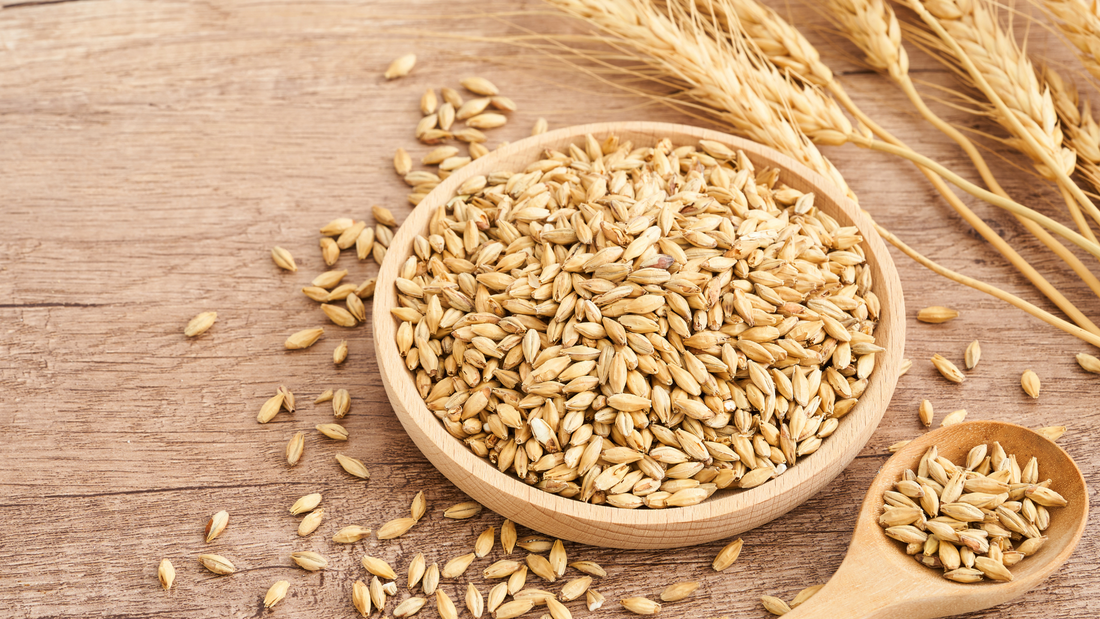Introduction:
In the realm of nutrition, whole wheat stands as a prominent grain that offers a myriad of health benefits. Its inclusion in a balanced diet has been linked to improved digestion and sustained energy levels, making it a staple in various cuisines worldwide. Rich in fiber, vitamins, minerals, and complex carbohydrates, whole wheat plays a pivotal role in promoting overall well-being.
Digestive Benefits of Whole Wheat:
Whole wheat is a powerhouse of dietary fiber, comprising both insoluble and soluble fiber components. These fibers play a vital role in supporting digestive health by facilitating bowel movements, preventing constipation, and promoting regularity in the digestive system (Anderson, R. 2009). Insoluble fiber, found in wheat bran, adds bulk to stools, aiding in their movement through the digestive tract. On the other hand, soluble fiber, present in the endosperm and germ of the grain, forms a gel-like substance that helps regulate blood sugar levels and contributes to a healthy gut environment by fostering beneficial gut bacteria (Anderson, J. et al., 2016).
Moreover, the presence of prebiotics in whole wheat nurtures the growth of probiotics in the gut, enhancing the overall balance of the gut microbiota. This symbiotic relationship between prebiotics and probiotics supports optimal digestion, nutrient absorption, and immune function (Azcarate-Peril, M. A. et al., 2017). These digestive benefits collectively contribute to improved gastrointestinal health and overall well-being.
Sustained Energy from Whole Wheat:
The complex carbohydrates in whole wheat, specifically the starches, serve as a primary source of energy for the body. Unlike refined grains, which are stripped of their bran and germ during processing, whole wheat contains all three parts of the grain—bran, germ, and endosperm. This intact structure slows down the digestion and absorption of carbohydrates, leading to a gradual release of glucose into the bloodstream (Slavin, J. L., 2003).
The slow and steady release of glucose results in sustained energy levels, preventing rapid spikes and crashes in blood sugar. This steady supply of energy is beneficial for maintaining focus, productivity, and endurance throughout the day (Higgins, J. A., 2012). Furthermore, the presence of B-vitamins, such as thiamine, riboflavin, and niacin, in whole wheat aids in energy metabolism, contributing to the efficient utilization of energy from carbohydrates, proteins, and fats (Lazaridou, A. et al., 2014).
Incorporating Whole Wheat into the Diet:
To reap the digestive and energizing benefits of whole wheat, incorporating it into the daily diet is essential. Some practical ways to include whole wheat in meals include:
Whole Wheat Bread and Pasta: Opt for whole wheat bread, pasta, and wraps as healthier alternatives to their refined counterparts.
Whole Wheat Flour in Baking: Replace refined flour with whole wheat flour in recipes for baked goods like muffins, pancakes, and cookies.
Bulgur and Wheat Berries: Experiment with bulgur, wheat berries, or cracked wheat in salads, pilafs, or as a side dish for added texture and nutrition.
Breakfast Cereals: Choose whole grain cereals made from whole wheat for a nutritious start to the day.
Conclusion:
The inclusion of whole wheat in the diet offers a multitude of benefits for digestive health and sustained energy levels. Its rich fiber content supports digestive regularity and a healthy gut environment, while its complex carbohydrates provide a steady source of energy. By incorporating whole wheat into daily meals, individuals can enhance their overall well-being and enjoy the nutritional advantages this versatile grain has to offer.
References:
Anderson, R. (2009). Whole grains protect against atherosclerotic cardiovascular disease. Proceedings of the Nutrition Society, 58(1), 53-58.
Anderson, J. et al. (2016). Health benefits of dietary fiber. Nutrition Reviews, 67(4), 188-205.
Azcarate-Peril, M. A. et al. (2017). Impact of short-chain galactooligosaccharides on the gut microbiome of lactose-intolerant individuals. Proceedings of the National Academy of Sciences, 114(3), E367-E375.
Higgins, J. A. (2012). Whole grains, legumes, and the subsequent meal effect: implications for blood glucose control and the role of fermentation. Journal of Nutrition and Metabolism, 2012, 829238.
Lazaridou, A. et al. (2014). Baking properties and sensory evaluation of muffins prepared with wheat flour substituted by whole grain barley flour. Food Chemistry, 145, 1095-1101.
Slavin, J. L. (2003). Whole grains and human health. Nutrition Research Reviews, 17(1), 99-110.

